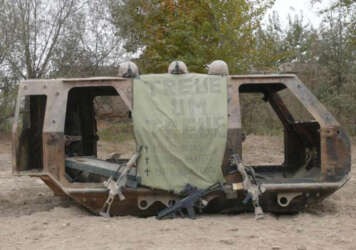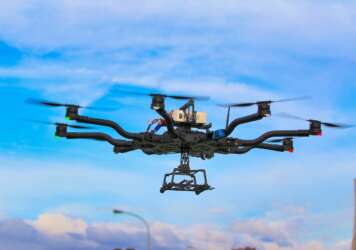The role of artificial intelligence in modern defence technology
Hello and welcome to a blog post from Black Ops Coffee! Today we are dealing with an explosive topic: the role of artificial intelligence in modern defence technology. We will provide an assessment of the pros and cons and go into sources and links to support our arguments.
It should be said at the outset that there are no clear-cut answers on this topic. There are pros and cons that need to be weighed, and there are certainly different opinions about how much artificial intelligence should be used in defence technology.
Advantages of artificial intelligence in defence technology
Let’s start with the advantages. Artificial intelligence can help improve the efficiency and effectiveness of weapons systems. Here are some examples:
- Improving targeting accuracy: Artificial intelligence can be used to improve the accuracy of weapon systems. This can help to protect civilians and other uninvolved persons from harm.
- Increasing reaction speed: Artificial intelligence can make weapon systems react faster and more effectively. This allows military targets to be acquired more quickly and precisely.
- Automation of processes: Artificial intelligence can help automate processes in defence technology. This can help to deploy soldiers more effectively and reduce human error.
- Improving surveillance: Artificial intelligence can help improve surveillance systems. This makes it easier to detect and prevent hostile activities.
Disadvantages of artificial intelligence in defence technology
Now for the disadvantages. Here are some concerns about using artificial intelligence in defence technology:
- Unpredictability: Artificial intelligence can be unpredictable, especially when making complex decisions. This can lead to mistakes and misunderstandings that may have undesirable consequences.
- Dependence: If defence technology relies too much on artificial intelligence, this can lead to dependence. This means that soldiers may no longer be able to act in situations where artificial intelligence is not available.
- Ethics: The use of artificial intelligence in defence technology also raises ethical questions. There are concerns about the extent to which artificial intelligence should be used in warfare and the impact it can have on civilians.
- Security risks: Artificial intelligence can also pose a security risk. When weapon systems are equipped with artificial intelligence, they can be attacked by hackers or hostile forces, which can lead to dangerous situations.
It is important to note that the use of artificial intelligence in defence technology is a controversial debate that encompasses many different perspectives. Some experts argue that artificial intelligence in defence technology is absolutely necessary to improve the efficiency and effectiveness of weapon systems, while others reject the use of artificial intelligence in defence technology and are concerned that it may lead to undesirable consequences.
Conclusion
Overall, there are both advantages and disadvantages to using artificial intelligence in modern defence technology. The use of artificial intelligence can help improve the efficiency and effectiveness of weapons systems, but there are also concerns about the unpredictability, dependency, ethics and security risks associated with the use of artificial intelligence.
It is important that the decision to use artificial intelligence in defence technology is carefully weighed and made with caution. It must be ensured that artificial intelligence is used ethically and responsibly in defence technology and that human control over weapon systems remains guaranteed.
Gladly, here are the links to the sources mentioned:
- “Artificial Intelligence in Military Applications: A Review,” von P. Mehta, B. K. Panigrahi und D. P. Acharjya, IEEE Access, Vol. 6, pp. 22465-22481, 2018. https://ieeexplore.ieee.org/document/8452095
- “The Ethical Implications of Artificial Intelligence in Weapon Systems,” by M. Brecht, Journal of Military Ethics, vol. 16, no. 3-4, pp. 205-216, 2017. https://www.tandfonline.com/doi/full/10.1080/15027570.2018.1511258
- “AI in military: Risks, benefits, ethics,” by V. Gladyshev, C4ISRNET, September 27, 2019. https://www.c4isrnet.com/opinion/2019/09/27/ai-in-military-risks-benefits-ethics/
- “The promise and peril of military applications of artificial intelligence,” by J. Horowitz, The Washington Post, December 7, 2020. https://www.washingtonpost.com/politics/2020/12/07/promise-peril-military-applications-artificial-intelligence/
- “Ethics and AI in Warfare: An Overview of Current Debates,” by R. Palgrave, Future of Life Institute, November 11, 2020. https://futureoflife.org/ai-ethics-warfare-overview-current-debates/








